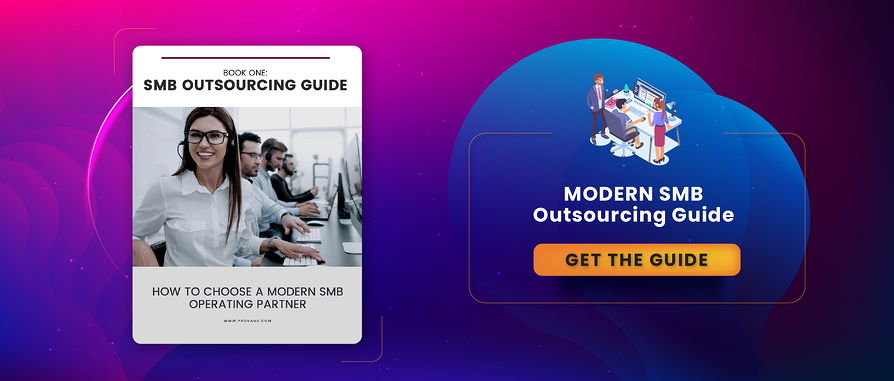BPO vs BPM – 4 Key Differences All SMBs Need to Know
- October 12, 2023
- Category: Business process management

Recommended Reading
Over the years, outsourcing models have moved away from simple call centers where it started, and now involves a wide range of business processes, including sophisticated, fully-trained employees. This means today outsourcing can take many forms, including Business Process Outsourcing (BPO) and Business Process Management (BPM).
While the difference between BPO and BPM may seem arbitrary, small and mid-size businesses (SMBs) need to understand how one is different from the other to make the most of the outsourcing model that best fits their needs.
Business Process Outsourcing Vs Business Process Management
Business Process Outsourcing (BPO) is a subset of outsourcing that involves hiring a third-party service provider to handle non-core business operations for you. When contracted outside your own country, BPO becomes offshore outsourcing. It usually focuses on the back office or front office operations. When contacted, the BPO provider shares a set of sample profiles with the client to choose from. Once these profiles are shortlisted, the enterprise client’s operations team onboards new staff and trains them. In case of attrition, the service provider is only bound to find replacement under a conventional BPO service level agreement.
Business Process Management (BPM), a relatively new subset of outsourcing, on the other hand, deals with hiring a service provider that handles highly skilled, and expert works such as litigation support and credit and collection services. BPM is similar to BPO in many aspects, except that a BPM expert takes responsibility for delivering the full business process along with hiring, training, and retention of the staff members. In other words, it is the BPM service provider that also trains replacements, motivates staff, and above all manages the operation. This very fundamental difference in business model reveals other key differences between BPO and BPM.
1. The difference in team management styles
When the BPO staff decides to leave for a different job, the provider finds a replacement. Still, the BPO staff has to be managed directly by the SMB. Not only managing and motivating remote personnel is difficult for SMBs, but the lack of a brand name also poses a challenge to retain key top performers.
On the other hand, a BPM expert provider not only finds, trains, and manages the replacement, but also ensures a defined roadmap for transition. The result? The client does not notice any disruptions in the event of employee turnover.
As the BPM team continues managing the team, the performance management of key resources gets more quantitative and is supported by Responsible, Accountable, Consult, Inform (RACI) charts and individual scorecards. This way, past and ongoing performance for each client can be presented with the help of a set of KPIs.
2. The difference in the degree of automation
Automation can enable clients to do more with fewer resources. Unlike BPO, BPM can help SMBs automate some of their key outsourced operations, reducing chances of staff burnout and deteriorating motivation – something closely tied to customer success. Not to forget automation of key BPM processes, including compliance management (for industries that need it) only streamlines the different steps in repeatable workflows to make them as effective as possible.
3. The difference in process efficiency
In a conventional BPO setting, SMBs are overburdened to manage the nitty-gritty of daily operations without necessarily having the required expertise. In the case of BPM, SMB teams don’t have to be involved in the minutest operational details. All they have to do is work together with the BPM provider to define standard operating procedures (SOP) for process efficiency, improved productivity, and reduced turn-around time (TAT).
4. The difference in the pattern of cost optimization
Another key importance is training. While it might be possible for a company to insource, it might be difficult to find the replacement of qualified, experienced professionals. Unlike BPO, BPM gives a client guaranteed access to experienced and trained professionals. This way, COOs and CTOs are more likely to concentrate on their core business and get rid of the extra infrastructural and training costs which will help reduce the cost of running these operations.








